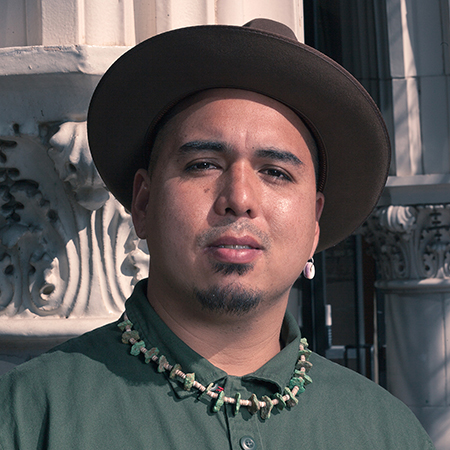The National Congress of American Indians has partnered with the Grow with Google Digital Coaches Program to bring broadband education to Indian Country.

All the broadband access in the world won’t help close the digital divide in Indian Country without the education to make use of the new technologies, says New Mexico Community Capital Program Director Henry Jake Foreman.
Improved infrastructure plays a crucial role in Native business by broadening market access, but Natives still need to know how best to take advantage of that access, Foreman told Tribal Business News.
“There’s definitely that bigger conversation around digital equity. It’s not just having the internet, but having the tools to use it,” Foreman said. “There’s training that’s available that should go hand-in-hand with any type of broadband access. There needs to be education coupled with that expansion.”
Foreman will serve as Grow with Google’s Digital Coach for Indigenous-owned businesses, offering digital skills workshops and advice on how to employ everything from Google Docs to Gmail in growing online ventures.
“These are things I use every single day in my work,” Foreman said. “I think these digital skills are a necessary tool. It’s important for us to be a part of it because we have been left out, but now we can potentially leapfrog into using this technology to create websites, online businesses, anything. I’m really excited about this opportunity for peer mentorship.”
The Grow with Google program offers a plethora of development opportunities, such as certification in particular applications, understanding and improving analytics, and developing digital marketing strategies.
Foreman’s Digital Coach page lists workshops for brand building, remote work and improving websites.
“I’m able to get trained in the newest and latest technology and share that with my peers,” Foreman said. “I’m able to share examples of other Indigenous entrepreneurs on how they were able to succeed using these tools. We really recognize that these tools can be daunting, and by having digital coaches like me, we help bridge this gap and meet people where they’re at.”
The new partnership, which includes a $750,000 grant to support technical assistance and community building, piggybacks off of existing cooperation between Alphabet Inc. philanthropic arm Google.org and NCAI. Prior collaborations include a pilot training program and a previous $1.25 million grant, according to NCAI.
NCAI President Fawn Sharp said NCAI was “excited” to continue its work with Google through the Digital Coaches program.
“While Native-owned small businesses have grown over the past thirty years and are significant contributors to growing tribal economies, entrepreneurial parity is still unrealized,” Sharp said in a statement. “This is a key reason why NCAI is excited to continue our partnership with Grow with Google to bring the digital skills necessary to help Indian Country businesses thrive.”
Grow with Google Digital Coaches Manager Lucy Pinto said Google was ready offer support to Native entrepreneurs through digital training.
“Through the Grow with Google Digital Coaches program, we’ve seen firsthand how small businesses can reach their full economic potential when they have access to digital tools,” Pinto said in a statement. “We’re proud to continue our partnership with NCAI and to work with our new Digital Coach to expand access to digital skills in Native and Indigenous communities. Their strong expertise will help more Native and
Indigenous-owned small businesses across the country thrive online, reach new customers, and unlock additional sources of revenue.”
Online business has become a flashpoint for Native enterprises in the wake of COVID-19.
“We’ve seen that in the pandemic where a lot of us were forced online,” Foreman said. “We just saw the real impact, and we also saw the power of online tools. I’m thinking of everything from social distance powwows to people going viral for their beadwork.”
Foreman pointed to a Connected Commerce Council report on the “digital safety net” created for businesses during the height of COVID-19. That report notes that 42 percent of surveyed Native American small businesses employed new digital tools during the pandemic, which helped buoy struggling operations amid lockdowns and severely curtailed foot traffic.
“We saw (small businesses) that adopted digital tools made twice as much revenue,” Foreman said. “There’s also data behind the idea that Native businesses that use these tools are more optimistic about their chances in the future. If we want our Native entrepreneurs to feel confident, we need to adopt these digital tools.”
Foreman looks forward to bringing both his background as an entrepreneur and his heritage as a member of the Absentee Shawnee Tribe of Indians of Oklahoma to create relevant and comprehensible training for aspiring business leaders.
“I’m really able to bring my own understanding of the digital divide. I’m able to share my learnings and lessons with Google itself,” Foreman said. “We’re able to sit down with people and really humanize this experience for them, and break things down in ways that resonate with these communities.”
